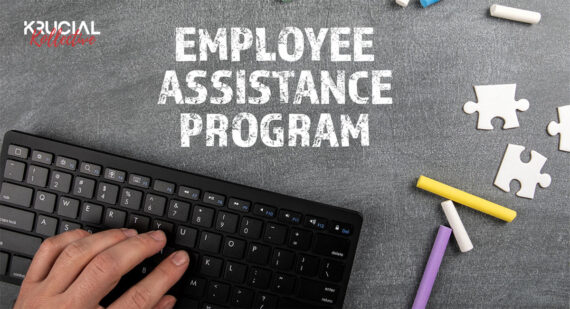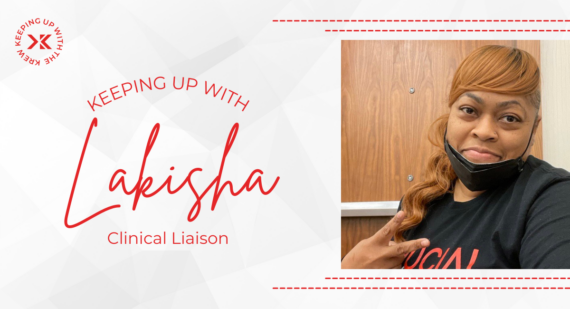
5 Factors Medical Professionals Should Consider for Their Next Travel Assignment
By: Maria Blong
We all want the best for ourselves. The best home, best shoes, best kitchenware – the list goes on and on. There are articles published everywhere stating thoughts and opinions in dedication to helping us find it. There are editorials providing the top reasons why this certain running shoe will reduce the likely hood of shin splints, or why this brand’s stainless-steel cookware is better quality than other cookware, even if the second option is more affordable.
All this to say – we are a very research-oriented society. If we are going to travel, buy an item, or eat at a new restaurant, we like putting in the research to make an informed decision. When it comes to job hunting, it is not any different. We find a job opening we want and then spend hours learning as much valuable information as we can before applying.
The decision to embark on a medical travel assignment asks the same for any interested party – perhaps it requires even more research and contemplation than a staff job. With medical travel assignments, there are multiple variables included in the equation, ultimately leading you to choose one position over another. These are the top five factors we recommend one to consider before locking in on a travel assignment: wage, location, duration, schedule, and benefits.
Wage
The hourly wage is often the top priority for many, and most of the time, it is the deciding factor for their final choice. And we understand why – you want to accept a wage that reflects all the time, effort, and money you have invested in your career. However, there are many reasons why income in the travel nursing field varies from position to position, and it is important to analyze why it fluctuates.
First, what kind of travel assignment is it? The type of work assignment will determine the wage you will receive per hour. At Krucial Rapid Response, we pay our medical staff higher for emergency response than we do for contract positions due to the intensity of the working environment and client needs. With the emergency response, you are also working around 60 – 72 plus hours a week, while contracts depend entirely on the facility.
Another question to ask yourself is this: Are you there for the increased pay that comes with travel assignments or the experience of traveling to new locations and helping communities? For many, it comes down to a ratio, or balance, on pay versus experience. However, if you are committing to the opportunity to live in a certain city/state and enjoy your days off – you may be okay with accepting less per hour.
Location
How far away do you want to travel? If you are hired for a contract position, there is more wiggle room for you to venture out on your days off. Staying close to home might give your family and friends the opportunity to come to visit. However, the contract location might inspire you to travel farther away to a city you have never been to before, granting you the chance to explore a different part of the United States.
Emergency response, on the other hand, does not provide you with as much freedom due to the demanding nature of the deployment, plus the health and safety protocols restricting travel. So, working close to home may be a bad idea for a couple of reasons. Say you commit to an emergency response 30 minutes from where you live but you are in lockdown at a lodging facility. Now, imagine staying that close to loved ones, yet unable to enjoy their company and your usual past times. This situation may stir up a lot of negative emotions for you. It may be in your best interest to travel a little further from home and avoid conjuring up any feelings of exile.
Duration
The length of an assignment can also be a question mark for some people. While some assignments last as short as a few weeks, others can last multiple months. The duration of time you are willing to stay for a medical travel assignment greatly depends on your personality and goals. Some individuals find it difficult to stay away from friends and family that long, while others do not mind being gone. You just need to ask yourself what you are willing or not willing to miss back home. What do you want to gain from a longer or shorter assignment? Do you want to form stronger connections with patients and staff, or do you want to come work, make money, and go back to the hotel?
Another key factor to bear in mind regarding the duration of an assignment is the mental toll it will take on you. Take inventory of the type of situations you tend to thrive in. Do you like the unknown or working in a busy environment? Do you enjoy a consistent schedule where you can predict your day? How would either affect you mentally? Supporting yourself financially is important but taking care of your mental health is also essential. If you are not taking care of yourself in this way, it will impact the way you care for patients. So, ask yourself these questions and answer honestly about what you can handle.
Schedule
Schedule preferences are straightforward in terms of forethought for assignments. It is a simple set of questions: How many hours do you want to work each week? Do you want to work a regular 36-48 hour schedule? Perhaps you want to work closer to 60 hours a week? In some cases, you might even work 72 hours a week. The final decision also coincides with what kind of pay and deployment type you want as well. All three factors influence each other.
The number of days off you would like to off need also to be taken into consideration. Emergency deployments typically only provide one day off while others may give you two or three days. This is also impacted by whether you work 12 hours, four days a week, or eight hours, five days a week.
Benefits
The option for added benefits or insurance is also something to consider while researching medical deployments. At Krucial Rapid Response, we offer different benefits based on the type of assignment you are working on. Emergency deployments provide the most benefits by offering lodging, transportation to and from work, meals (either provided or per diem), a Krucial Onsite Representative, and, on occasion, a traveling bonus. With all these benefits, the living costs for anyone on emergency deployment can essentially be covered.
For most contract assignments, our clients decide which benefits they want to include. Fortunately, many of them provide housing for the medical staff coming in to assist their hospital or facility. The client may also cover the cost of staying in the area or supply a meal per diem for groceries.
Krucial Rapid Response also offers limited insurance to anyone who works for us for at least 30 days. This is available for people who are working either a contract or emergency deployment. The only stipulation is you must be on assignment to receive coverage.
Overall, travel assignments should be selected with careful attention to detail. Many horror stories regarding bad contracts or assignments stemmed from a lack of understanding of what the requirements or compensation were for the position. By slowing down the rush to get an assignment, and diligently addressing all five of the listed factors, you can assure yourself a better, more thoughtful selection for your next travel position.
Interested in contributing to the Krucial Kollective? Send us an e-mail at marketing@krucialrr.org and let us know what you would like to write!
"...we are a very research-oriented society. If we are going to travel, buy an item, or eat at a new restaurant, we like putting in the research to make an informed decision. When it comes to job hunting, it is not any different."



